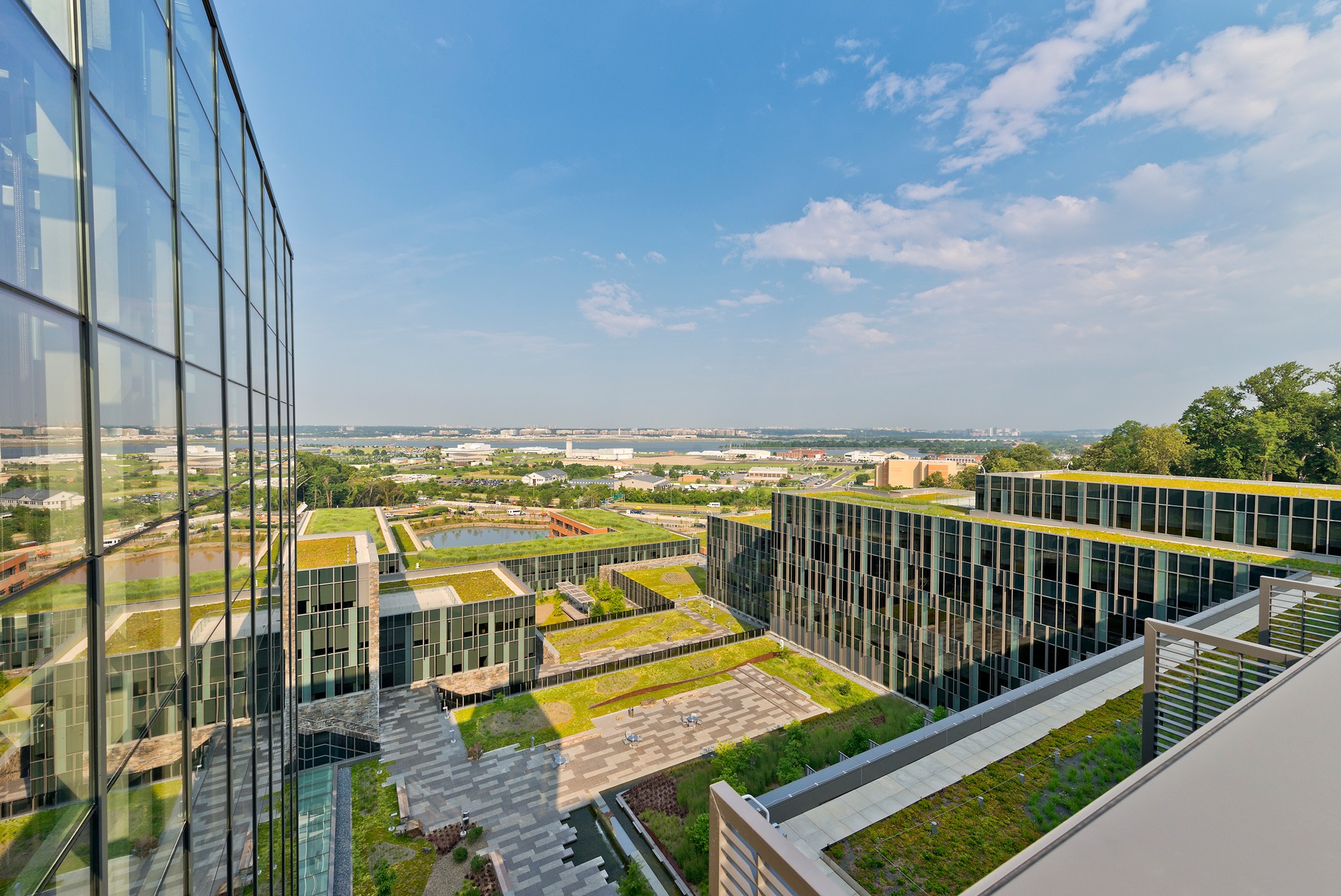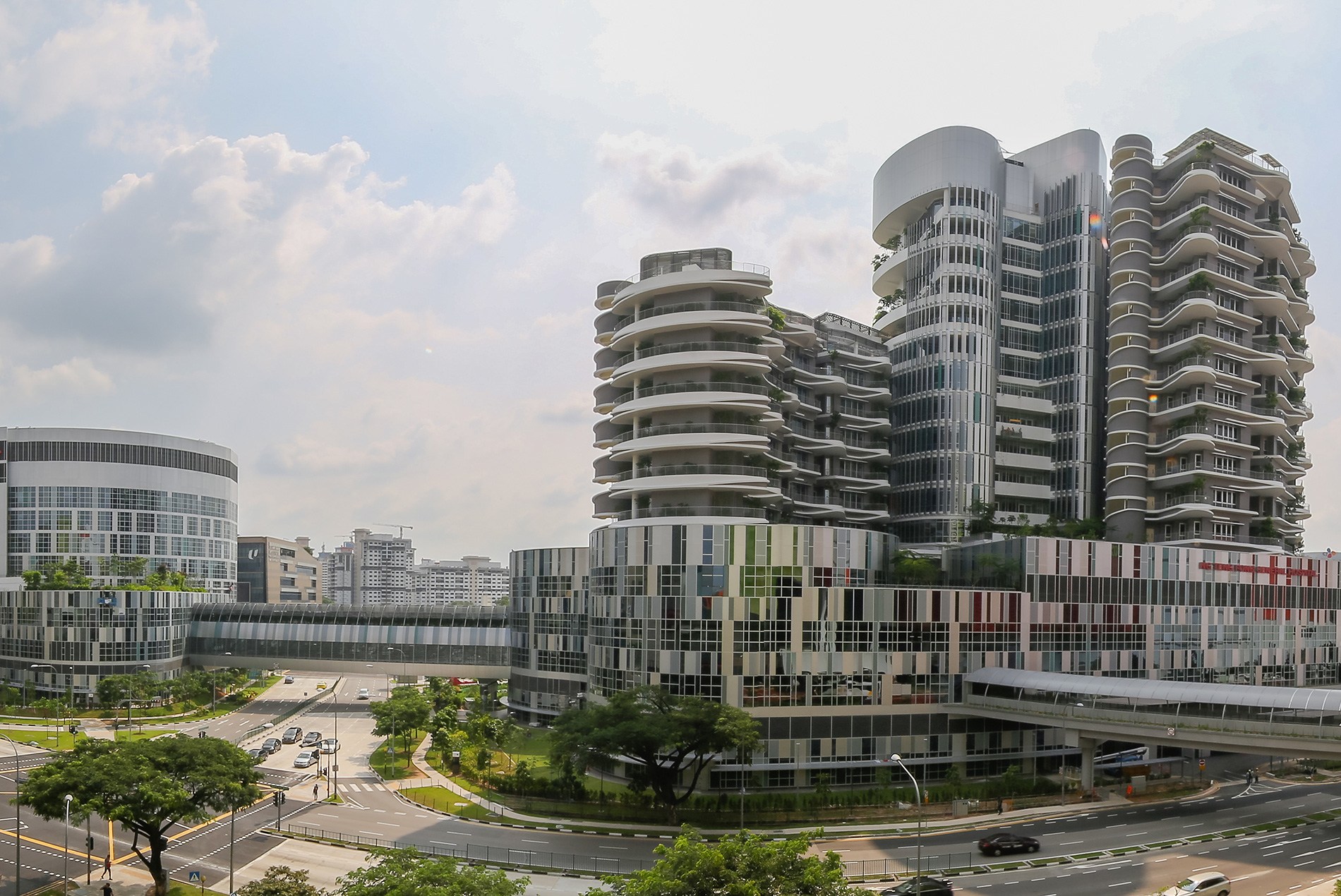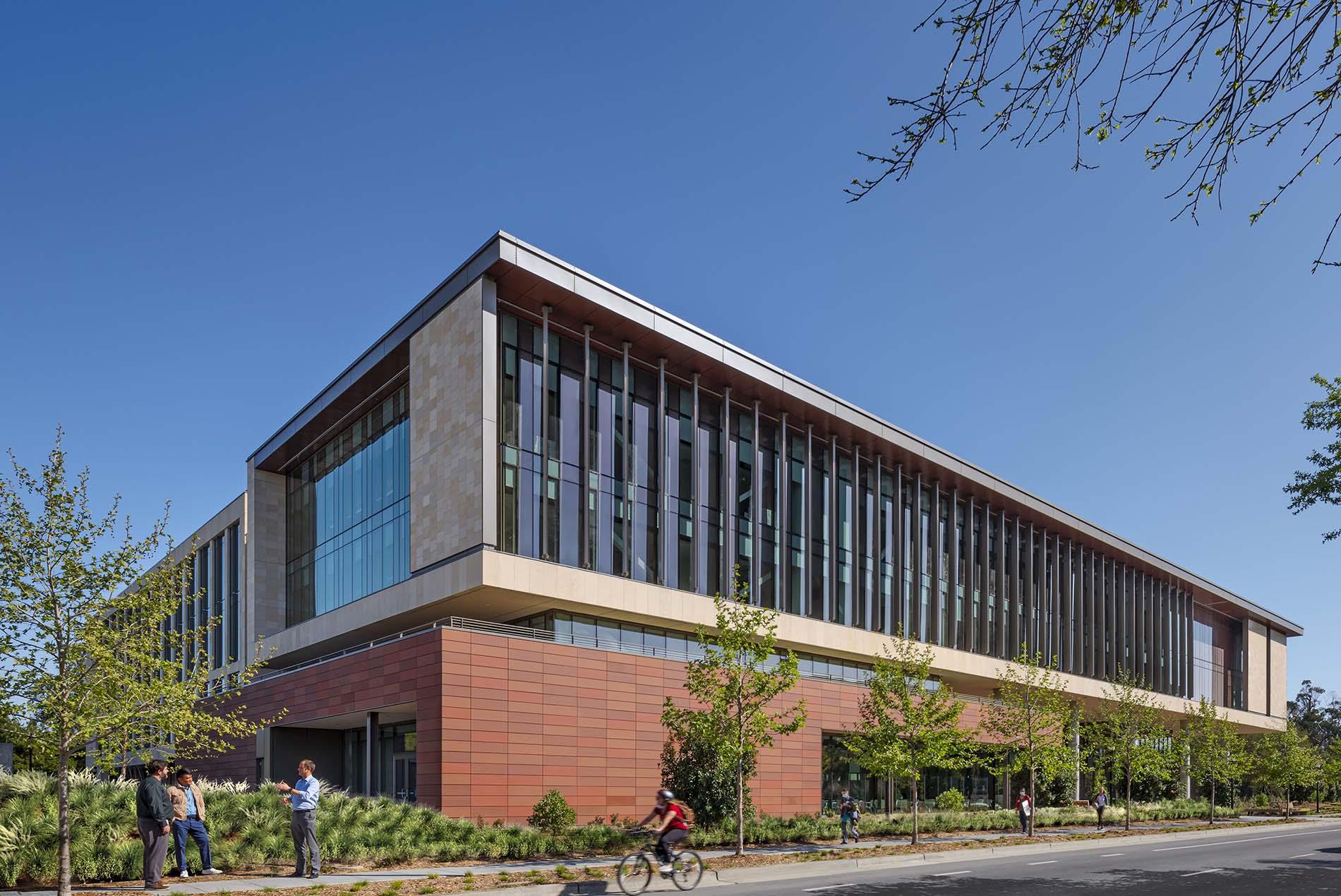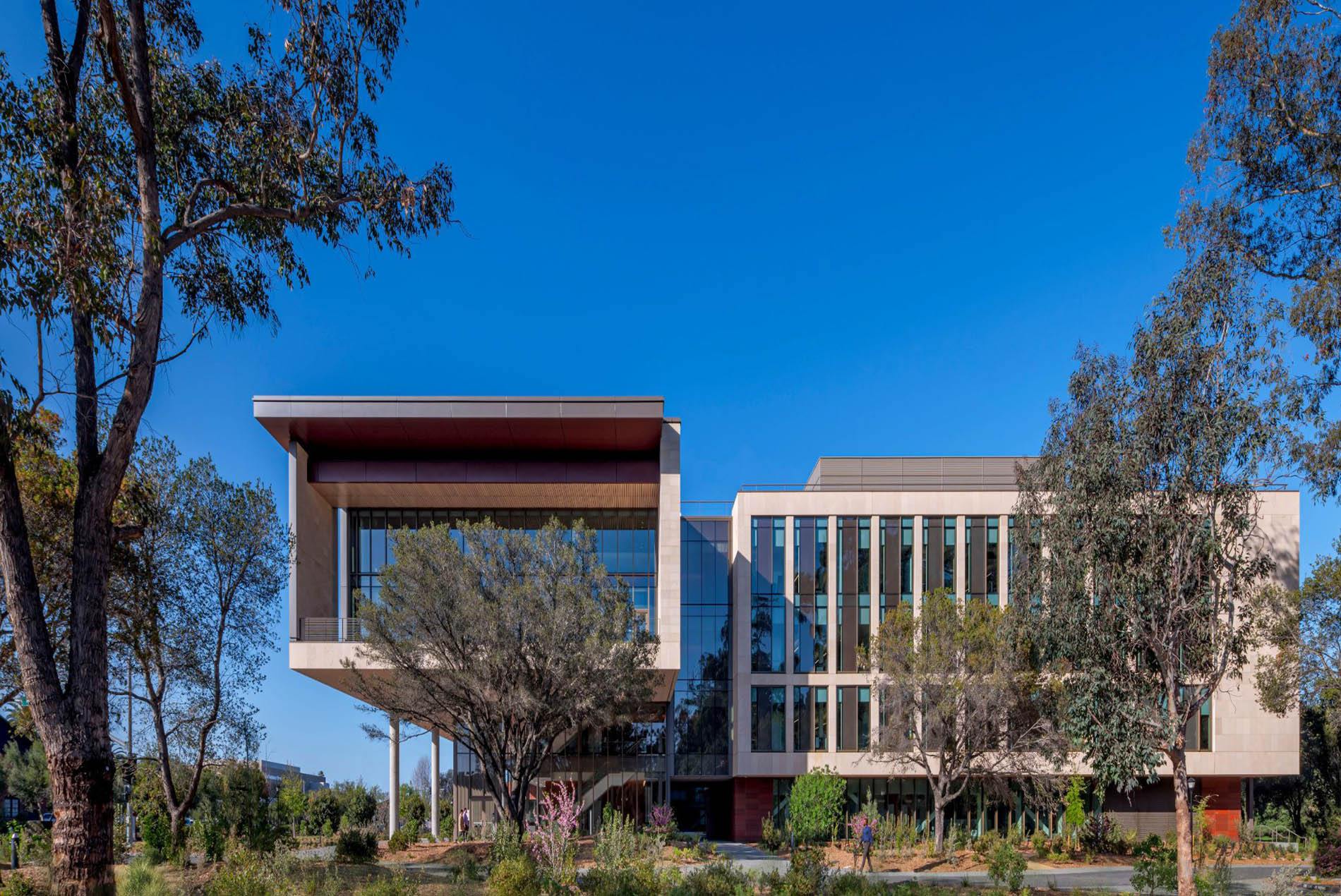HOK’s Sean Quinn describes how to design our built environment to be regenerative rather than extractive.
At the Ellen MacArthur Foundation Summit 23 in London, Sean Quinn, AIA, LEED AP BD+C, BREEAM, BEAM Pro, director of regenerative design at HOK, engaged in a discussion with Joe Murphy, the Foundation’s executive lead, network. Their conversation focused on regenerative design’s role in creating built environments that give back to nature.
Watch the entire conversation below and read on for highlights.
Quinn introduced the audience to regenerative design, emphasizing its role in enhancing nature through ecosystem focused methods for development. He illustrated this with examples from HOK’s portfolio, including the U.S. Coast Guard Headquarters (below) in Washington, D.C., where the design integrated a multi-tiered landscape system to manage stormwater, maximize reuse potential, and purify excess water flowing into the Anacostia River, creating a habitat conducive to local wildlife.

From water abundance to scarcity, the discussion took the audience to Dubai, where the team’s design of a hospitality and residential development used habitat inspiration to develop a sustainable and cooler environment. By understanding the groundwater sustenance in an oasis, the team created a campus that optimized passive design, natural ventilation, as well as a water filtration and reuse system that enhanced the landscape, resulting in up to 5°C cooler temperatures than the downtown environment.
In another case study from Singapore, Quinn highlighted the design of the Ng Teng Fong General Hospital (below), where the team applied principles of a rainforest ecosystem to the medical facility, promoting better air quality and well-being. This project showcased the potential of building nature into urban landscapes, enhancing environmental health and human well-being.

Quinn then described HOK’s regenerative design of the Stanford University School of Medicine Center for Academic Medicine (below) in Palo Alto, California. The design drew inspiration from the adjacent arboretum and the coastal live oak ecosystem, blurring the boundaries between indoor and outdoor spaces. By inviting nature into the building’s courtyards and creating comfortable outdoor workspaces, the project fosters a low-carbon environment that enhances well-being and promotes collaboration.

Quinn highlighted HOK’s participation in Project Positive, a collaborative initiative led by Biomimicry 3.8 and supported by the Ellen MacArthur Foundation. Project Positive brings companies together to apply new methodologies to achieve climate goals. It encourages the development of buildings that coexist harmoniously with nature while actively enhancing and regenerating natural environments.
Quinn concluded by emphasizing the need for more regenerative design change agents and highlighting the vital role of cross-sector partnerships in bringing these forward-thinking concepts to life.
Find out more about HOK’s Regenerative Design studio.
